The Red Thread Read online
Page 19
“All right,” Ming said, trying to sound convinced. She took a sliver of pepper and Buddy slapped her hand playfully.
“Not yet,” he said.
She leaned in and kissed him softly on the mouth.
“Mmmm,” Buddy moaned. He kissed her back, harder and with intention.
“Not yet,” Ming said.
At the door, she stood and watched him for a moment.
“Go,” he said, without looking up.
And so she went.
THE WITNESSES SAID the car just jumped the curb. It did not zigzag down the street, or veer erratically off course. One moment, it was driving along with all the other cars. The next it was on the curb. When it hit the crowd walking on the sidewalk, the sounds were unforgettable. One witness said bodies flew in the air. One said she would never forget the screams.
For Buddy, these statements were all he had to make sense of losing Ming. He told anyone who would listen each detail. She stole a sliced pepper. She kissed him goodbye. She was just three blocks from home. The car showed no sign of danger. It just jumped the curb. Bodies flew everywhere. One woman would never forget the screams.
After he said this, he told how when he heard the knock on the door, he thought Ming had forgotten her keys. He opened the door and found two policemen standing there with serious looks on their faces. One had a mustache. One had small drops of blood on his cheek. From shaving or from the accident, Buddy did not know. But he did worry over this detail. The one with the mustache asked him if he was Ming’s husband. That was when he knew.
“She was on her way to the United Airlines ticket office,” he always said to whoever was listening to his story. “You know the one? The main one? Her ticket to America was there.”
His mother wanted him to move back to Loudi with the baby. But where would he teach economics in such a small place? His mother-in-law wanted the baby. “I told her there would be disruption,” she said.
Disruption did not seem a big enough word for what had happened. Catastrophe. Cataclysm. No, even those were too small. Ming was dead. And Buddy did not know what to do.
FOR WEEKS, Buddy woke feeling as if he had not slept. Rather, the night just went on and on in a tumble of darkness and sweaty sheets until eventually morning came. Then he rose from the bed, fed the baby, and tried to think of what to do next. But this morning, as he watched Geng eating her mashed bananas, an idea came to him.
Outside, a cold rain fell, smearing the windows and casting a gray tone over everything. Buddy imagined the cocoon of his office, the polished wooden desk and silver lamp with its high-intensity bulb. He imagined the hum of the fluorescent lights in the outer office, the astringent smell of cabbage that lingered in the air. In the apartment, Ming’s fingerprints covered everything. But in his office, he would be safe from grief.
Buddy lifted the baby from her high chair.
“You are supposed to be in America,” he whispered to her.
Even the baby wore Ming’s fingerprints. Her blue pants, her socks covered with blue flowers, the red jacket he buttoned on her now, everything said Ming. It was too much. Was he really meant to endure this pain, day after day, hour after hour?
With his daughter pressed close to him, Buddy left the apartment, balancing umbrella, diaper bag, baby. The rain fell hard. By the time he arrived at the bus depot he was wet and chilled. He took a cloth from the bag and dried his face and hands. The baby watched him solemnly.
When the bus arrived, Buddy boarded, choosing a seat by the window so that he could rest his head against it. The baby slept, snoring slightly. Buddy closed his eyes and listened to the rain and the traffic. For the first time since that careless driver jumped that curb and killed his wife, he slept.
TO KILL TIME until nightfall, Buddy went to a restaurant. The waiters all wore the red uniforms of Mao’s Red Army. A large picture of Mao hung on the wall. But the food was good, spicy and plentiful. A waitress took a liking to the baby, and offered to play with her while Buddy ate. He handed his daughter to her without emotion. This is how you give your child to someone else to care for her, he thought. He was surprised how easy it was, how light he felt when the young woman took the baby from him and walked away.
Diagonally across the street sat a low, squat building, undistinguished in every way. From the restaurant, Buddy could see into its courtyard, where even in the rain a small group of children played with a ball. The children were laughing and squealing.
“Excuse me,” Buddy said to the woman playing with the baby. “I need to run a simple errand. May I leave her with you for a moment?”
The woman did not hesitate. She was singing a song that required counting the baby’s fingers and so she held the baby’s hand in her own, ready to continue.
“That’s fine,” she said. “We’re having fun here.”
“I see that,” Buddy said. The baby was smiling her toothless smile. She seemed happy.
He took his umbrella and stepped out into the rainy street. Not far from here was his mother’s house. He didn’t even consider going there, however. His daughter was not going to live in that backward village with no opportunity. He and Ming had worked hard to get educations, to make a good life for themselves and their child. He couldn’t betray his wife.
At the entrance to the courtyard, Buddy paused.
One of the children, a boy with strange crossed eyes, called to him. “What do you want?”
“What is this place?” Buddy asked.
The children looked at each other, and then they looked down at the ground. The ball sat in a puddle.
“Do you all live here?” Buddy asked.
A girl of about six with a twisted arm said, “We are the ones no one wants.”
“Why?” the cross-eyed boy said. “Are you looking for a baby? There are hundreds inside.”
“Not hundreds,” another boy said. “But dozens.”
He seemed like a fine boy, older than the others but without any obvious defects. Buddy wondered why no one would want him.
“What happens to those babies?” Buddy asked.
The cross-eyed boy said, “Some of the littlest ones die. The damaged ones stay. But the lucky ones, they go to paradise.”
“Paradise?” Buddy said.
A little girl with thick black braids stepped forward. She was pale and skinny. “America,” she whispered.
“Or Spain or Sweden or—” the cross-eyed boy began.
A door flew open and a gray-haired woman in a yellow business suit stepped out.
“Hush!” she told the children. “Inside now.” She narrowed her eyes at Buddy. “Get out!” she said. “Get out or I’ll call the police.”
Buddy nodded, but he did not leave. He watched the children file inside. They walked in a very orderly fashion. None of them even glanced his way.
BACK AT THE RESTAURANT, Buddy ordered tea. The waiters sat at the table across from him and took kale from cardboard boxes. They stripped the tough outer leaves from the kale and rinsed the tender part left behind in a plastic dish of water. Buddy watched them for a while, then he watched the building across the street.
It was growing dark. The rain slowed to a drizzle. The woman in the yellow pantsuit came out of the building and walked in small fast steps to a gray car. She had a briefcase in one hand and an umbrella in the other. When she drove away, Buddy asked for the bill. He paid it, and gave some change to the young woman who had played with the baby.
The baby was asleep now.
“My daughter has a long ride back to Changsha,” he said to one of the waiters. “May I take this box to use as a little bed for her?”
The waiter shrugged. “It will just get thrown away. Take it if you want.”
Buddy took the cloth from the diaper bag and placed it on the bottom of the box. He gently laid his daughter on top of it, then placed the pale green blanket his wife kept in the bag over her. When he lifted the box, he was surprised at how light it felt.
With great purpose,
Buddy walked out of the restaurant and across the street. He entered the courtyard. The blue ball still sat neglected in a puddle. No sounds came from the building.
Buddy placed the box at the doorstep. He gazed down at his sleeping daughter. She looked so much like Ming that his heart tightened with pain and he had to look away.
He pressed the button by the side of the door. Even from outside, he could hear the loud buzzing. He pressed again, and then a third time. When he thought he heard footsteps approaching, Buddy walked away, fast. He stood across the street, in the shadows, waiting.
The door opened, and a woman in purple sweatpants and a gray sweatshirt that said GAP across it, peered out. She looked to her right, and then to her left. He could not see the expression on her face, whether she was angry or disappointed or perhaps even joyful at the sight of the baby asleep in the box that moments earlier had held kale.
The woman bent and lifted the box. She seemed to look inside. Perhaps she cooed to the baby. Perhaps she pressed her warm hand to the baby’s cheek, the way a mother might. Perhaps she whispered tender words to her. Buddy could not know what happened in that moment before the woman stepped back inside with his daughter and closed the door.
REFERRALS
MANY DREAMS CAN OCCUR OVER A LONG NIGHT.
13
MAYA
Panicked, Maya had called Emily before her flight to California and told her where she was headed. Now, lying on the bed in her hotel, she called Emily again. Maya wanted nothing more than to be in her office at the Red Thread, faxing information to China, working on getting families their babies.
“I am so anxious,” Maya said. “You need to talk me down.”
“Do you want to know what Dr. Bundy would say?” Emily asked. She didn’t wait for Maya to answer. “Dr. Bundy would say that flying across the country to see your ex-husband would of course make you anxious.”
“Thanks,” Maya said. “That’s really helpful.”
“Dr. Bundy would ask you what your expectations are for this meeting,” Emily said.
“Well,” Maya said, “we’re meeting at a taco place. So I guess tacos? Cervezas?”
“You,” Emily said, “are in denial.”
“I know,” Maya said.
When she hung up, she stared at the ceiling for a while more, wondering what her expectations were. Somehow, she could not move forward without seeing Adam. But what if seeing him actually moved her backwards? Maya thought of these past several months and how her heart had started to open itself ever so slowly. After New Year’s, Jack had steadily emailed her until she invited him to Providence again. And now they had almost settled into a routine of weekends together. But every time he left, she thought about how she could not fall in love with him. In some ways, Maya decided, backwards did not really sound so bad. It meant back to her workaholic life. Back to long days in the office where placing those babies was the only thing she thought about. Back to falling into bed at night alone, with just a glass of wine and a book beside her. Back to a safe place.
Maya sat up. Something settled in her. If Adam blamed her for the death of their daughter and for ruining his life, for ruining everything, then she could go back to her old life. And maybe that was what she had come across the country for. Thank you, Dr. Bundy, Maya thought. Then she got up and began to get ready to meet Adam.
THE TACO PLACE was a dive, a low-slung turquoise building with a sagging roof and peeling paint.
“Best tacos in Santa Barbara,” Adam had told her when they set up the meeting yesterday.
Of course now Maya remembered how Adam loved to find offbeat places that surprised with great food. They had driven for miles to the North Shore for coconut shrimp, or tracked down a truck parked on some far-flung beach because he’d heard they made the best coconut shrimp. Adam loved to dress up and pay too much for the chef’s tasting menu at Alan Wong’s, but he also loved this: a dive that happened to serve unforgettable tacos.
Walking across the parking lot, Maya could almost smell the ginger Adam grated into his homemade teriyaki sauce, the garlic he studded into pork loins, the pineapple-infused vodka he made by cutting fresh pineapple into good vodka and letting it marinate for two weeks. Adam fed her. All she could make was a decent roast chicken. The memory of that smell combined with the pungent ones coming from the restaurant made Maya feel off-kilter. Her heel hit the gravel awkwardly and she tripped, tumbling onto the hard asphalt, skinning her knees and the palms of her hands.
Loud Mexican music blared. Why had she opted for shoes with heels instead of flip-flops? she thought as Adam appeared above her, shaking his head.
“I watched you go down,” he said, bending to help her to her feet. “But I couldn’t get here fast enough.”
Maya felt blood trickle down her leg. She was standing in a parking lot with Adam, bloodied and stinging. She could not think of what to say.
He had her by the elbow and was leading her toward the restaurant door.
“Let’s get you cleaned you up,” he said.
Hot tears sprang to Maya’s eyes. She turned her head so Adam wouldn’t see.
Inside, he disappeared briefly. Maya watched him get napkins and two beers from a cooler. He was taking care of her, the way he had a million years ago when they were married. Maya wished she could stop the flood of memories, but she was powerless here in this brightly lit restaurant with the loud music and the blood oozing down her leg.
Adam handed her a bottle of beer, took a sip from the other one, then kneeled at her feet.
“Ouch,” he said as he gently wiped the blood. He dabbed at her knees, pausing only to take another swallow of beer.
He had proposed this way, on his knee on a deserted beach at sunset. Maya had cried then too, at how much she loved this corny romantic guy. Now, she heard him actually singing along in Spanish to the song playing. Without thinking, she reached out and touched his hair. Still too long and sun-streaked, wavy and out of control. She used to try to tame it with her fingers.
Adam jerked away from her touch and looked up at her, startled.
“I think you’ll live,” he said, getting to his feet.
Other than some silver strands in that hair of his, and more lines around his eyes, Adam looked exactly as she remembered. His legs were tanned and muscled beneath khaki cargo shorts. His UC Santa Barbara T-shirt hung untucked over his flat stomach and still-broad shoulders. He used to be a swimmer and a surfer, and Maya guessed he still did those things.
“You look good,” she said. She’d been staring at him long enough to owe an explanation.
“You too,” he said stiffly.
“Number seventy-four,” the cashier called, and Adam said, with relief, “That’s us.”
Us. The word made Maya shiver. For the first time she noticed the large gold wedding band shining on his finger as he walked back toward her with a tray of food.
“Tell me about your wife,” Maya said after Adam explained all the taco fillings he’d ordered.
Adam nodded as if to say, Fair question. “She’s a librarian,” he said, smiling. “Carly.”
Carly was a young person’s name, Maya thought. She’d placed three babies who got named Carly. His wife must be young and beautiful. A good wife. A good mother.
Maya nodded now. She hated Carly.
“One day I went to the library in Honolulu, the downtown branch, and they were having a story hour,” Adam was saying.
Carly was a children’s librarian, Maya thought, hating her more. She pictured a Laura Ashley dress, clogs, glasses.
“And I stupidly stopped and watched these beautiful little kids listening to the story, and all of a sudden, I’m crying all over the place, thinking about how my daughter never got the chance to sit in a library on colorful mats and have a story read to her. And she never would get that chance. And all of the things she would never get to do kind of jumped up and hit me in the head, and I sat right down in the middle of the library and cried. Carly came over to m
e, she was in the stacks doing research, and without saying a word she put her arms around me and held me while I cried.”
Maya was nodding like an idiot, like she understood this story and was glad for it. Carly the Research Librarian. Carly the Angel.
Adam looked right at Maya. “She saved my life,” he said.
“Wow,” Maya said stupidly. “I can see that.” She thought: I ruined it and Carly saved it.
As if he read her mind, Adam said, “You ruined it and Carly saved it.”
Maya swallowed hard. The taco tasted like dirt. “Yes,” she said. “Yes.”
“I am a person who sticks things out,” Adam said softly. “I wanted to stick it out, even after.”
“I know.” She dared to look right at her husband’s face. Ex-husband, she reminded herself. “I couldn’t stay.” Her mouth and throat were so dry she thought she might not manage to eke out the words. “It was my fault. I couldn’t face you every day knowing what I did.”
Adam put his hand on hers. “I never blamed you,” he said.
Maya shook her head. “You didn’t have to. I blame myself.”
“Don’t,” he said.
Maya tilted her head toward his until their foreheads touched lightly. Tenderly, he lifted her hand and kissed it.
“You have a good life now, right?” Maya asked him.
“Yes.” He didn’t let go of her hand. “I think of her every day.”
Maya nodded.
“I guess that will never go away. But there’s a kind of comfort in that. No matter how far from her I am, she’s still with me. I keep her picture in my wallet, you know. The one where she’s wearing the lei the office secretary made for her first birthday. And she has chocolate frosting on her face and she looks so happy.”
“She was happy,” Maya whispered.
“She was,” Adam said. “Happy and beautiful and loved.”
They sat silently for a while, her hand still resting in his. Then Adam said, “Would you come for dinner tonight? Meet Carly and Rain?”

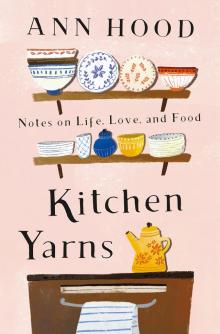 Kitchen Yarns
Kitchen Yarns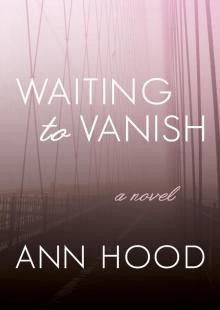 Waiting to Vanish
Waiting to Vanish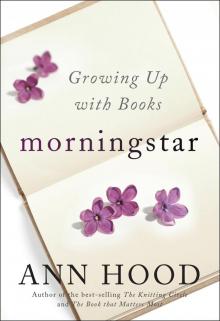 Morningstar
Morningstar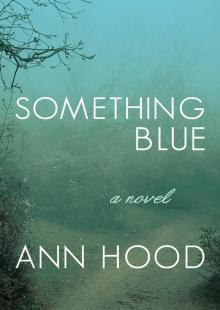 Something Blue
Something Blue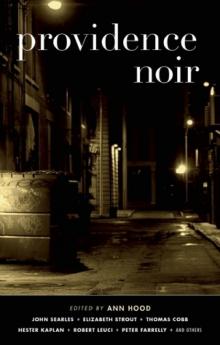 Providence Noir
Providence Noir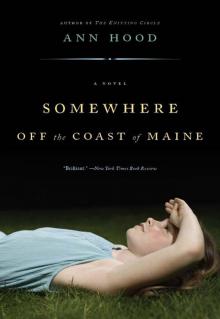 Somewhere Off the Coast of Maine
Somewhere Off the Coast of Maine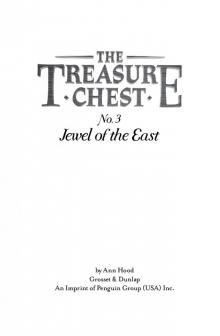 Jewel of the East
Jewel of the East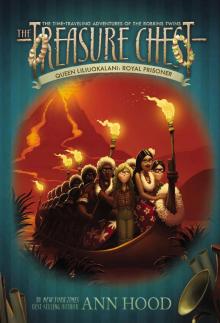 Queen Liliuokalani: Royal Prisoner
Queen Liliuokalani: Royal Prisoner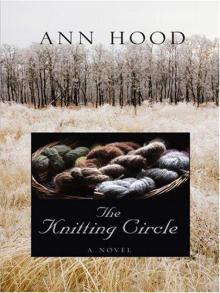 The Knitting Circle
The Knitting Circle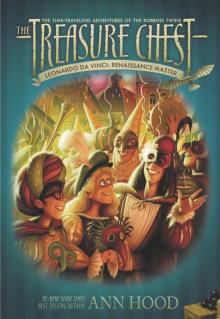 Leonardo da Vinci: Renaissance Master
Leonardo da Vinci: Renaissance Master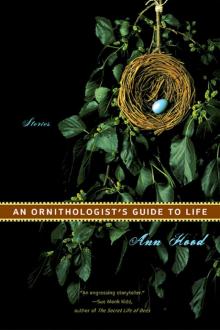 An Ornithologist's Guide to Life
An Ornithologist's Guide to Life The Red Thread
The Red Thread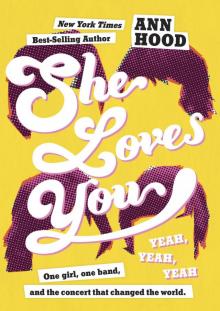 She Loves You (Yeah, Yeah, Yeah)
She Loves You (Yeah, Yeah, Yeah)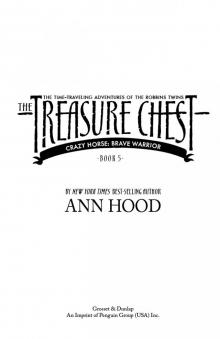 Brave Warrior
Brave Warrior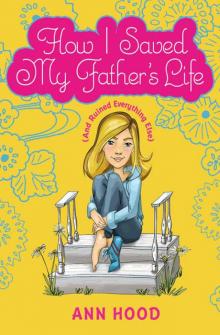 How I Saved My Father's Life (and Ruined Everything Else)
How I Saved My Father's Life (and Ruined Everything Else)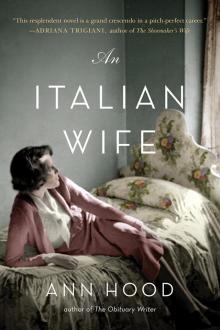 An Italian Wife
An Italian Wife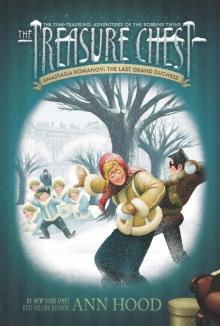 Anastasia Romanov: The Last Grand Duchess #10
Anastasia Romanov: The Last Grand Duchess #10 Prince of Air
Prince of Air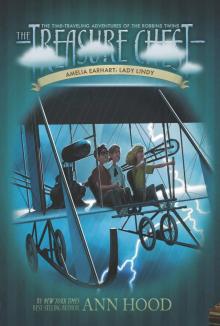 Amelia Earhart: Lady Lindy
Amelia Earhart: Lady Lindy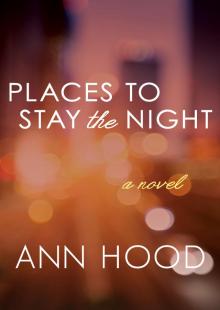 Places to Stay the Night
Places to Stay the Night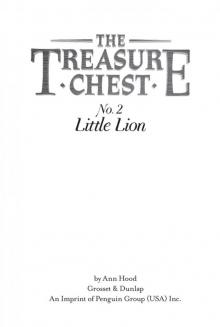 Little Lion
Little Lion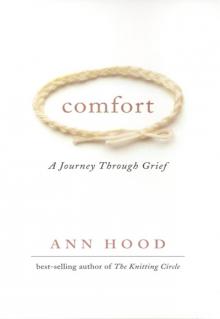 Comfort
Comfort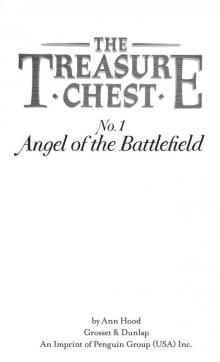 Angel of the Battlefield
Angel of the Battlefield